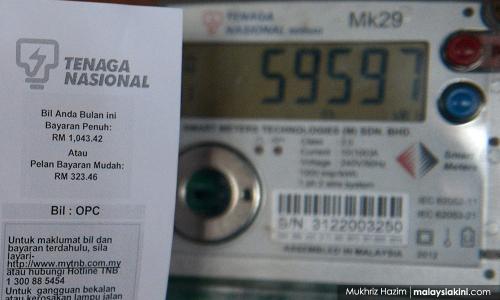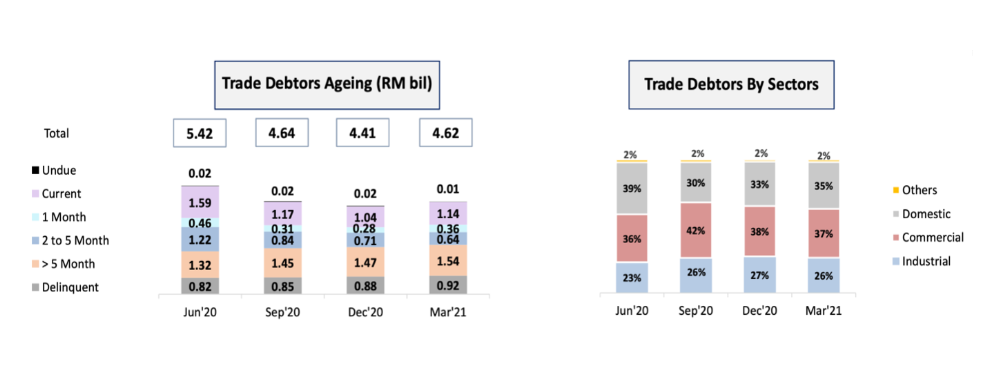LETTER | Rising household electricity bill arrears extremely worrying
LETTER | The outstanding household electricity bills in Peninsular Malaysia under Tenaga Nasional Berhad (TNB) has been rising sharply since October 2020 and requires targeted financial support from the federal government.
It is safe to say that some Malaysian households had exhausted their financial savings to clear their respective outstanding electricity bills accumulated during the first movement control order (MCO) from March 18, 2020 to May 3, 2020.
Now, the outstanding electricity bills for domestic households has grown steadily from RM1.39 billion in September 2020 to RM1.62 billion in March 2021.
The number of households owing more than five months is also rising exponentially. It should also be noted that the figure from TNB is underquoted as many serviced apartments on commercial land are billed as low voltage commercial tariffs and are reported as commercial users.
This is an extremely worrying trend, which reflects the dire state of certain households in Peninsular Malaysia amid the recession induced by the Covid-19 crisis.
The Energy and Natural Resources Ministry (KetSa) needs to deal with this matter by doing the following:
1. Switch all service apartments from commercial tariff into domestic tariffs.
2. Utilise TNB profits worth RM3.6 billion to relinquish electricity bills for zero-income households.
TNB has been charging serviced apartments disproportionately higher under low voltage commercial tariff compared to other residential homes.
Thus, KeTSA needs to instruct TNB to automatically switch the tariff for service apartments from commercial to domestic (residential) tariffs and recalculate their electricity bills from March 2020.
Between January 2020 and March 2021, TNB had made a net profit worth RM4.55 billion, putting TNB in a solid financial position to relinquish the electricity bills of zero-income households.
TNB’s wealth was accumulated from the blood and sweat of the people. Thus, the profit needs to be diverted to help zero-income households and ease their financial pressure.
SHARAN RAJ is Parti Sosialis Malaysia Central Committee member.
The views expressed here are those of the author/contributor and do not necessarily represent the views of Malaysiakini.
RM12.50 / month
- Unlimited access to award-winning journalism
- Comment and share your opinions on all our articles
- Gift interesting stories to your friends
- Tax deductable

